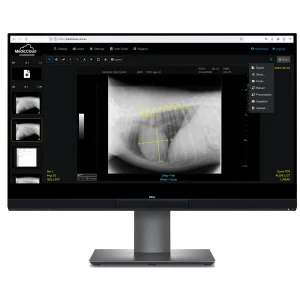Home » AI-Driven Scams Are On The Rise. Beware!
Artificial intelligence (AI) driven scams
As AI becomes more integrated into the tools and platforms we use every day, cybercriminals are increasingly exploiting it for malicious purposes. At Medic Cloud, we strive to help businesses understand how scammers are employing AI-driven scams, particularly in email-based attacks, and what actions you can take to stay protected.
🔈 Listen as podcast
Title: AI-Driven Scams Are On The Rise. Beware!Duration: 04:43

Sam, Medic Cloud Managing Director
How are scammers exploiting AI?
While AI technologies continue to streamline daily tasks and improve productivity, cybercriminals are using the same tools to deceive users at an alarming scale. They generate realistic scam content, impersonate real individuals, and automate fraudulent activities. As a result, these sophisticated methods have fueled a significant rise in digital scams.
Understanding how AI enhances email scams
Scammers now deploy AI to execute more complex and convincing email scams. The following techniques have become especially common:
Deepfake emails and language replication
Scammers use AI to craft emails that mirror a specific individual’s tone and communication style. These messages often sound strikingly authentic, which makes them much harder to detect.
Automated phishing campaigns
AI bots generate and distribute millions of phishing emails that target particular industries or job roles. By using data collected from breaches or public sources, these emails appear surprisingly tailored and credible.
Intelligent malware attachments
Attackers embed malware into documents such as PDFs or Word files that appear professional and trustworthy. AI-generated invoices, contracts, and HR forms now closely resemble legitimate business documents.
Fake websites and platforms
Using AI-generated content and branding, scammers build cloned websites that mimic trusted services. These sites often contain realistic login or verification pages designed to capture user credentials.
What do scammers aim to steal?
Although the tactics have evolved, the goal of AI-driven scams remains unchanged: gather valuable information and convert it into profit. What makes modern scams more dangerous is the scale at which they operate and the delay before the stolen data is used.
Scammers typically target the following:
-
Personal information such as names, addresses, phone numbers, and email addresses
-
Business credentials including internal communications, login details, and access points
-
Trade secrets like client pricing structures, proposal templates, and sensitive documents
-
Patient records, which hold long-term value and may be sold or exploited months after the breach
Once gathered, this data is often sold on the dark web or used to:
-
Create fraudulent identities to open bank or credit card accounts
-
Register services like Uber, MyGov, or Centrelink using compromised credentials
-
Conduct corporate espionage or launch blackmail attempts
Key warning signs of AI-powered scams
Remain alert to the following indicators:
-
Emails that appear unusually polished or highly personalised to your role
-
Login pages that resemble official platforms but use suspicious URLs
-
A sudden rise in personalised spam messages
-
Colleagues reporting that they received messages from you that you did not send.
Software solutions we offer at Medic Cloud
Our range of software solutions.
How can you stay protected?
To reduce your risk of falling victim to an AI-based scam, take these precautions:
-
Never share your login credentials through email. Medic Cloud will never ask for your username or password
-
Enable multi-factor authentication wherever it is available
-
Confirm any questionable requests through trusted communication channels or in person
-
If anything seems suspicious, contact your internal IT team or email us immediately
Promote a transparent and security-focused culture
Falling victim to an AI-driven scam does not reflect a lack of caution. These attacks are engineered to deceive even experienced and tech-savvy users. The faster you report an incident, the more effectively we can limit any damage. Transparency and quick communication play a crucial role—report any concerns right away.
AI-Driven scam statistics in 2024
| Timeframe | AI Scams Identified Globally | Estimated Cost to Organisations | Estimated Cost to Individuals |
|---|---|---|---|
| Daily | Over 750,000 | AUD $29 million | AUD $4.1 million |
| Weekly | Over 5.2 million | AUD $186 million | AUD $28.4 million |
| Annually | Over 260 million | AUD $9.7 billion | AUD $1.5 billion |
Sources: Scamwatch, Interpol AI Threat Reports, and 2024 industry security data
Final takeaway
AI is reshaping not only the business landscape but also the tactics cyber criminals use. The most effective defense lies in staying informed, remaining vigilant, and fostering open communication. Medic Cloud stands ready to support you as these threats continue to evolve. If you ever feel uncertain about a message or request, reach out to us. Taking a moment to verify could save your business from significant harm.
Read more blogs

Subscribe to Medic Hub
Get the latest insights direct to your inbox.





